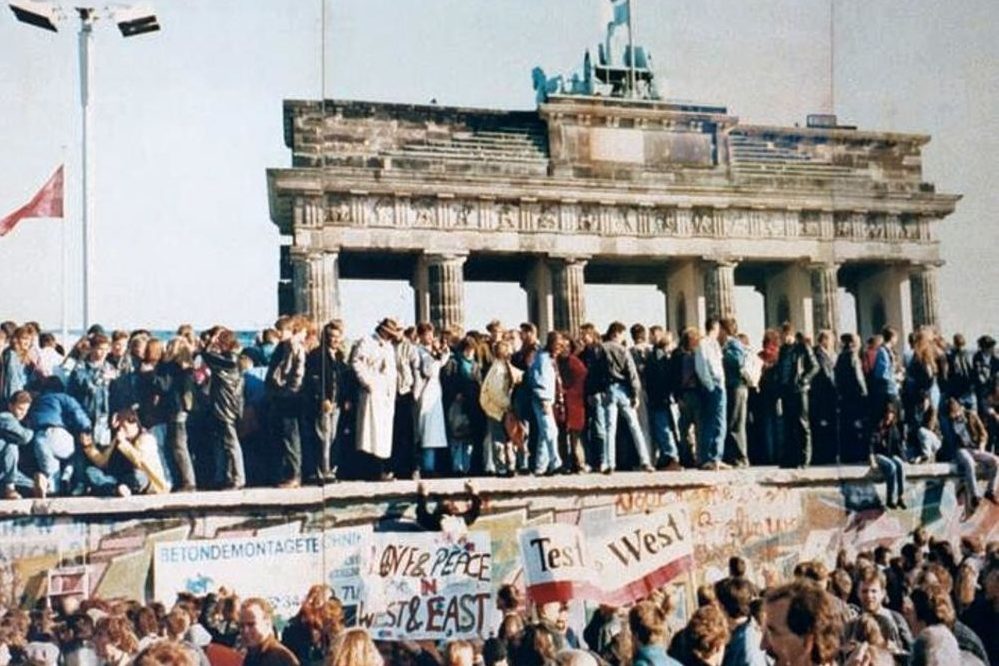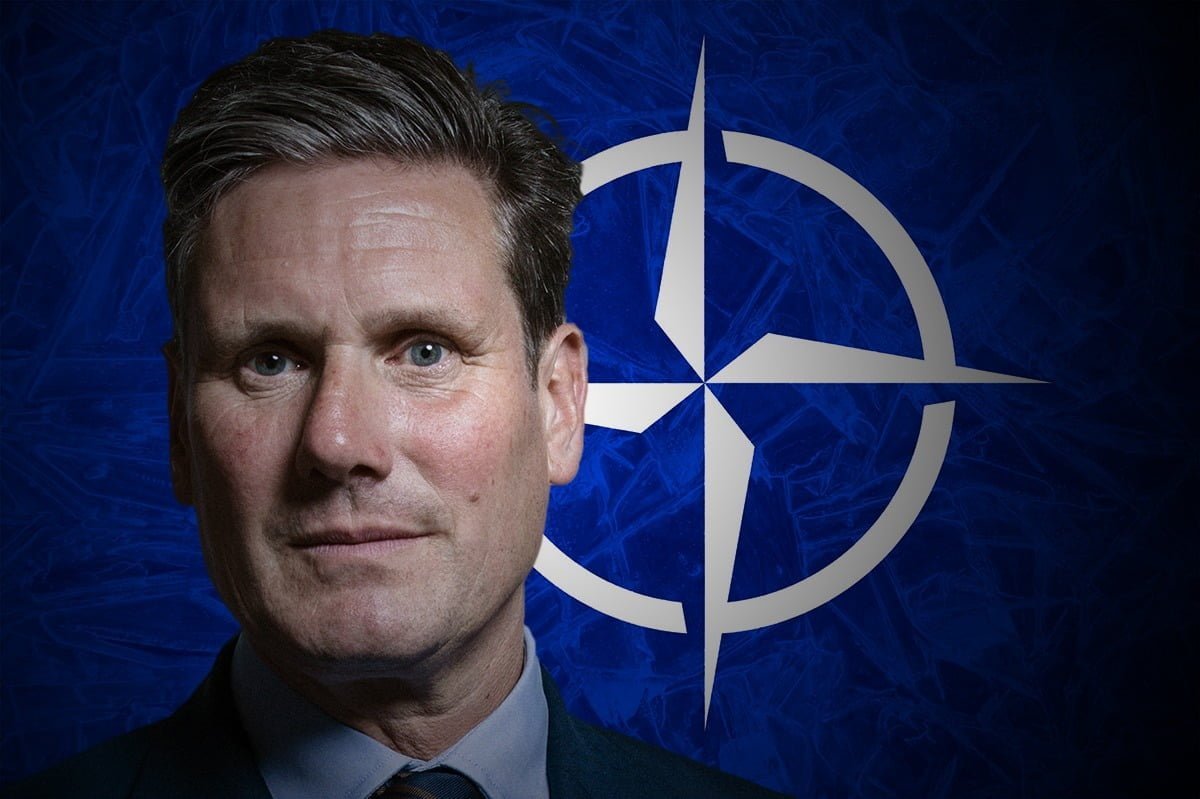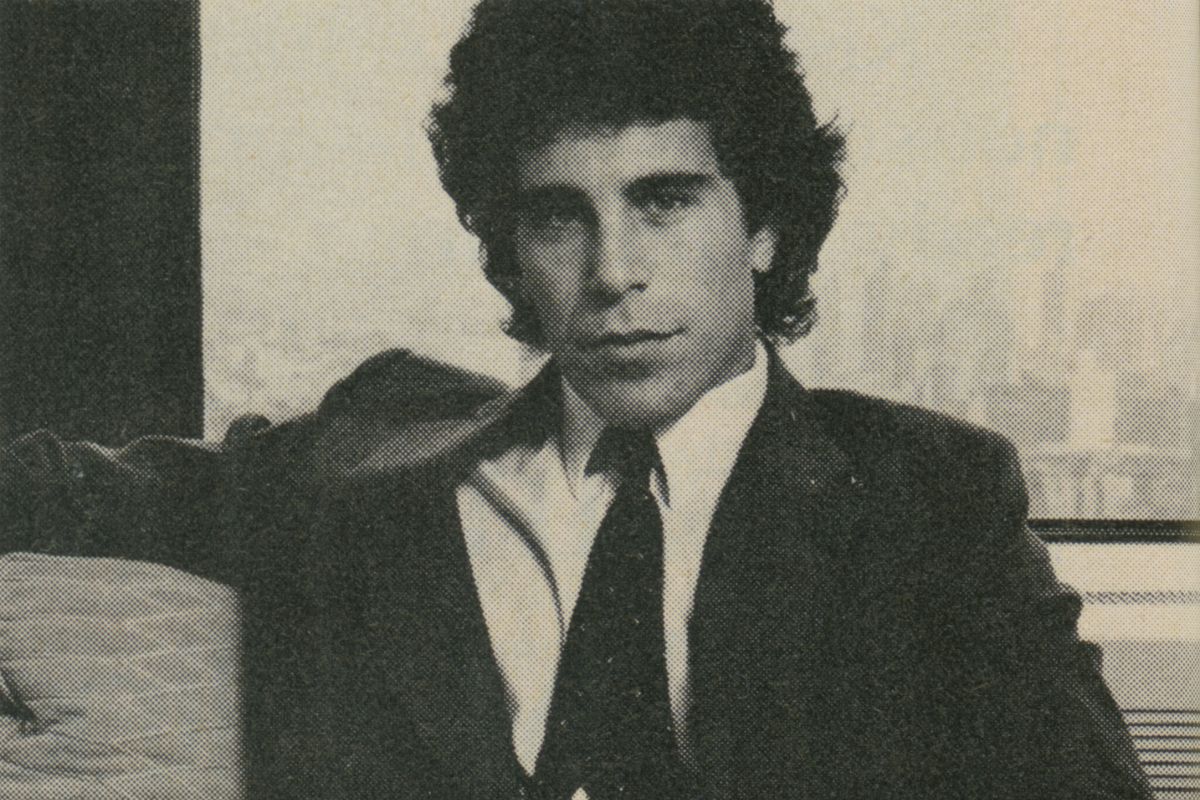Last week, Keir Starmer published a cringeworthy love letter to western imperialism in the Guardian newspaper. His frothy excitement about NATO and his cartoonish patriotic chest-beating are an attempt to paint himself as a champion of the British establishment and an enemy of the left. But his article is a mess of lies and imperialist propaganda from start to finish.
Starmer showers praise on the military alliance of western imperialists, cynically – and nauseatingly – comparing it to Britain’s National Health Service as one of “the great achievements of the 1945 Labour government”; a “transformational legacy” that apparently has Labour’s “proud”, “unwaverable”, and “unshakeable” support.
“To condemn NATO is to condemn the guarantee of democracy and security it brings,” the Labour leader writes. We wonder if Afghan workers and youth feel the same way, 20 years after NATO forces invaded their country.
Starmer says NATO is a “defensive alliance that has never provoked conflict”. But over the last 30 years, NATO has zealously participated in aggressive military action in Iraq, Yugoslavia, Afghanistan, Somalia, and Libya.
At the same time, it has continually expanded eastwards towards Russia, surrounding the country with troops and military equipment.
Starmer’s fairy stories are akin to those that we are taught at school and force-fed by the media – about the good guys in the West and the bad guys in the East. Such claptrap is only fit for children, not thinking workers and youth.
Western aggression

In reality, NATO was founded in 1949 not as an instrument of peace, but as a weapon to fight the Cold War. It has remained a weapon ever since.
It is a military alliance, which gets three-quarters of its funding from the USA; and which says that if one member is attacked, then every other member must respond with force.
After the collapse of the Soviet Union, the Russian economy entered freefall. Chaos reigned, and Russia was on its knees. The western imperialists seized the opportunity to expand their markets and spheres of influence eastwards. NATO has been a key part of this strategy.
In 1999, former Warsaw Pact countries Poland, Hungary, and the Czech Republic joined NATO. In 2004, they were joined by Estonia, Latvia, and Lithuania. Slowly but surely, Russia’s borders were being ringed by members of a hostile military alliance.
Starmer describes Russia as “the aggressor” and a “bully”. But which of NATO and Russia has hawkishly expanded into the markets and territories of the other’s former allies? Which has been placing troops and military hardware on the borders of the other for many years?
NATO’s provocations towards Russia continued. In 2003, a rabidly pro-US government was brought to power in Georgia. US advisers helped train the Georgian army, and encouraged them to test the limits of Russia’s defensive capability.
At a 2008 summit in Bucharest, NATO members agreed that Georgia and Ukraine, both bordering Russia, would join the alliance in the future.
Whipped up by these events, Georgian president Saakashvili attacked the autonomous region of South Ossetia in 2008, where over 90% of the population are Russian citizens.
This marked a turning point. With this attack, US imperialism had overreached, and had underestimated the strength of Russian capitalism, which had been rebuilt since the early 1990s.
The Russians counter-attacked, decisively defeating the US-trained Georgian army. NATO members – who were tied up in unpopular and fruitless wars in Iraq and Afghanistan – could only watch from the sidelines as their ally was crushed by the Russian military machine.
Imperialist machinations
Next came Ukraine. In 2014, when the Ukrainian president Yanukovich signed a deal with Russia instead of the EU, western imperialism played an important role in the outcome of the subsequent ‘Euromaidan’ protest movement.
US senator John McCain spoke at rallies in Kiev, and the US Assistant Secretary of State admitted having spent $5bn to get US policies implemented in Ukraine.
Thanks in large part to the machinations of US imperialism, the pro-Russian Yanukovich government was overthrown. It was replaced by a government of pro-western bourgeois parties, including the far-right party Svoboda, which also extended an invitation to the neo-Nazi Right Sector fascists to participate in the administration.
This new government aligned itself explicitly with its NATO backers, while clamping down on and provoking Russian-speaking Ukrainians in the east of the country.
Again, Russia responded to the provocation – annexing Crimea, where Russia has an important naval base. NATO members foamed at the mouth, but could do nothing in response.
In both Georgia and Ukraine, the Russian regime drew lines in the sand and told NATO: ‘Thus far and no further.’
NATO weakness

Today, NATO has never been weaker. In 2015, during the Syrian war, Russian warplanes repeatedly violated the airspace of Turkey, a NATO member. Turkey appealed for help from its NATO allies. The alliance responded with nothing more than strongly worded statements.
In 2016, NATO deployed a measly 4,000 troops to Poland and the Baltic states as a ‘sign’ of its support for Eastern Europe. Meanwhile, the Pentagon reported that only a deployment of at least 30-40,000 troops would be able to prevent the Russian army overrunning the Baltic states in a matter of days, should the Kremlin decide to do so.
Wave after wave of capitalist crises over the last 15 years have seen a rise in protectionism, pitting national cliques of capitalists against each other. The crisis has paved the way for a rise in class struggle and political turmoil. None of this is conducive to maintaining a 30-state military alliance.
The Putin regime has understood the weakness of NATO, and Washington’s focus on China as its main enemy. As a result, Putin has seized the moment to reverse three decades of NATO’s encirclement and isolation policy towards Russia, by massing troops on the border with Ukraine.
Liberal hypocrisy
This has provoked howls of protest from a rogue’s gallery of apologists for western imperialism – including Starmer, Paul Mason, and assorted middle-class liberals (some of whom even pose as socialists).
These scoundrels clothe their cringing support for western imperialism with rhetoric about ‘defending democracy’ and ‘the right of nations to self-determination’. “The integrity of a sovereign nation on our continent of Europe stands in peril,” writes Starmer about Ukraine.
Where was this concern for Ukrainian sovereignty when US imperialism was spending billions of dollars supporting fascist gangs, overthrowing a Ukrainian government which didn’t do its bidding?
The struggle between NATO and Russia is a fight between two cliques of gangsters over markets and spheres of influence. The rights of small nations, or the democratic credentials of their regimes, are only of secondary concern to the imperialist powers.
The British regime consists of a corrupt and law-breaking government; a discredited police force; a disgraced royal family; a media that is either state-run or billionaire-owned – all of which are united in crushing the living standards of working-class people.
And yet Starmer has the cheek to describe Britain as a “free nation”, claiming that this dictatorship of big business somehow has a god-given right to admonish others and throw its weight around on the international stage.
This attempt to align the interests of workers in Britain with those of the British ruling class is blind patriotism. It is described as “Bevinite internationalism” by Starmer. In fact, it is just jingoism and war-mongering on behalf of the establishment and western imperialism.
Socialist internationalism

In contrast to this apology for imperialism, socialist internationalists recognise that the western imperialists – armed to the teeth – have provoked a fight with the thuggish clique in the Kremlin, who are now hitting back.
In this power struggle over markets and profits, it will be working-class people in the USA, Britain, Ukraine, and Russia who lose out.
“To truly stop war, you need to show you are serious about standing up for peace,” says Starmer, vacuously.
In fact, only international solidarity between workers can prevent war. For genuine internationalism, we should take our example from the action by dockworkers in Le Havre, Genoa, and Marseille in 2019. It was these workers, refusing to load weapons onto ships, which disrupted the Saudi imperialists’ war against Yemen.
We must not let the British ruling class – or its lapdog ‘Sir’ Keir Starmer – pull us into supporting western imperialism with honeyed lies about democracy and freedom. Neither, however, should we fall into the trap of supporting the Russian ruling clique against NATO.
Instead of joining in with this deafening establishment chorus and their hysterical denunciations of foreign regimes, the primary task of the left and the labour movement in Britain is to aim our fire at our own belligerent, corrupt, criminal ruling class, and the western imperialist interests that they defend and serve.
Socialists have no faith in imperialist blocs to solve the problems faced by the working class, at home or abroad. This includes the threat and destruction of war.
Only the united action of, and solidarity between, the workers of the world can achieve peace and prosperity for all.






